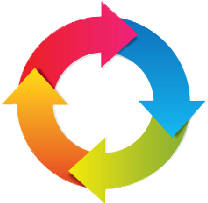00:00
00:00
LESSON 2: The Benefits of KRA Data
While it's essential for children to have a sufficient level of readiness for kindergarten, it's also true for first grade where the academic expectations are higher. You can have an enormous impact on their lives and academic success by preparing them for first grade during the kindergarten year. And you conduct the KRA at the start of the school year, you'll have data to make instructional decisions early on. The following are some of the skills the KRA helps you assess:
The KRA also provides outcomes data that you can use to dialogue with pre-kindergarten teachers and programs about areas of instruction where there are identified needs.
While it's essential for children to have a sufficient level of readiness for kindergarten, it's also true for first grade where the academic expectations are higher. You can have an enormous impact on their lives and academic success by preparing them for first grade during the kindergarten year. And you conduct the KRA at the start of the school year, you'll have data to make instructional decisions early on. The following are some of the skills the KRA helps you assess:
- Language and literacy - understanding individual sounds and word meanings; being able to communicate in different settings
- Math - numbers, counting, relationships between numbers
- Social foundations including executive functions - recognizing emotions in themselves and others; resolving conflicts, managing attention; persistence; impulse control and following rules
- Physical - gross/fine motor skills
The KRA also provides outcomes data that you can use to dialogue with pre-kindergarten teachers and programs about areas of instruction where there are identified needs.
Watch the video to learn more about KRA benefits.






